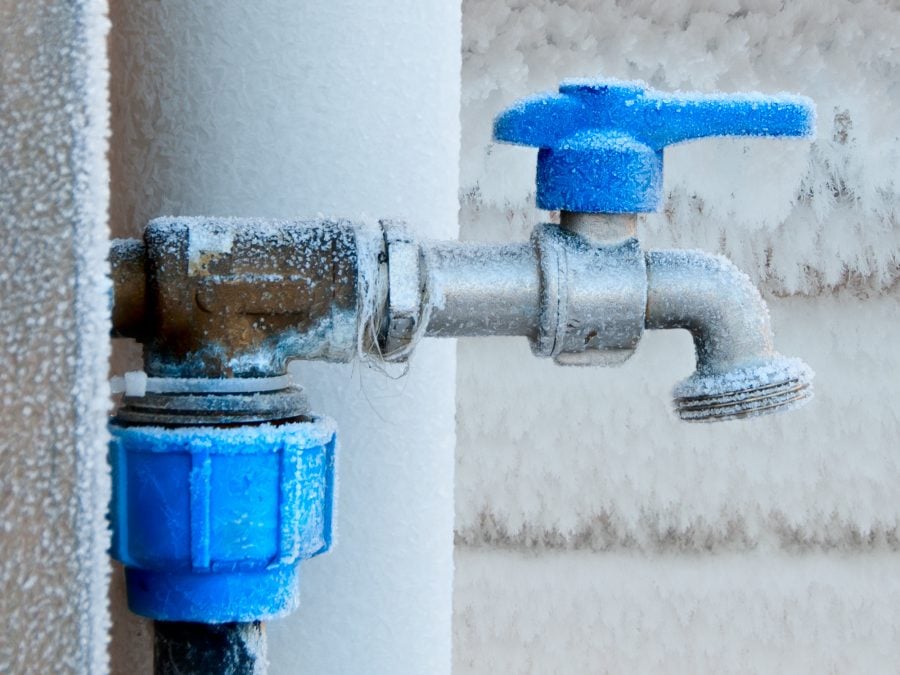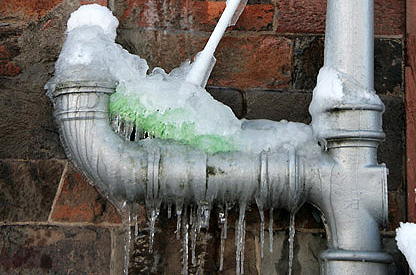This great article down below about Prevent Frozen Pipes is without a doubt motivating. You should check this stuff out.

Cold weather can damage your pipes, particularly by freezing pipelines. Here's how to avoid it from taking place and what to do if it does.
Intro
As temperature levels drop, the danger of frozen pipelines boosts, possibly leading to costly repair work and water damages. Recognizing just how to prevent icy pipes is important for home owners in cold climates.
Prevention Tips
Shielding susceptible pipes
Wrap pipes in insulation sleeves or utilize heat tape to shield them from freezing temperature levels. Concentrate on pipes in unheated or external areas of the home.
Home heating strategies
Maintain indoor areas effectively heated, specifically locations with plumbing. Open up cabinet doors to permit warm air to flow around pipelines under sinks.
Just how to identify icy pipes
Look for decreased water circulation from faucets, uncommon smells or noises from pipes, and noticeable frost on revealed pipes.
Long-Term Solutions
Structural modifications
Think about rerouting pipes far from exterior walls or unheated areas. Include added insulation to attics, basements, and crawl spaces.
Upgrading insulation
Purchase high-grade insulation for pipelines, attics, and wall surfaces. Appropriate insulation helps keep constant temperatures and lowers the danger of frozen pipes.
Shielding Outside Pipes
Garden tubes and outside taps
Disconnect and drain pipes garden pipes before wintertime. Set up frost-proof faucets or cover outdoor taps with shielded caps.
Comprehending Icy Pipes
What triggers pipelines to ice up?
Pipes freeze when revealed to temperatures listed below 32 ° F (0 ° C) for expanded periods. As water inside the pipes freezes, it increases, taxing the pipeline walls and potentially triggering them to rupture.
Risks and damages
Frozen pipelines can lead to water system disturbances, residential property damages, and costly repair work. Burst pipelines can flooding homes and create considerable architectural damage.
Signs of Frozen Pipeline
Identifying frozen pipes early can prevent them from bursting.
What to Do If Your Pipes Freeze
Immediate actions to take
If you suspect frozen pipes, keep taps open up to eliminate pressure as the ice thaws. Use a hairdryer or towels taken in hot water to thaw pipelines slowly.
Verdict
Avoiding icy pipes calls for proactive procedures and fast reactions. By recognizing the causes, indications, and preventive measures, house owners can shield their plumbing during winter.
Helpful Tips to Prevent Frozen Pipes this Winter
UNDERSTANDING THE BASICS: WHY PIPES FREEZE AND WHY IT’S A PROBLEM
Water freezing inside pipes is common during the winter months, but understanding why pipes freeze, and the potential problems it can cause is crucial in preventing such incidents. This section will delve into the basics of why pipes freeze and the associated problems that may arise.
THE SCIENCE BEHIND FROZEN PIPES
When water reaches freezing temperatures, it undergoes a physical transformation and solidifies into ice. This expansion of water as it freezes is the primary reason pipes can burst. As the water inside the pipe freezes, it expands, creating immense pressure on the walls. If the pressure becomes too great, the pipe can crack or rupture, leading to leaks and water damage.
FACTORS THAT CONTRIBUTE TO PIPE FREEZING
Low Temperatures: Extremely cold weather, especially below freezing, increases the risk of pipes freezing. Uninsulated or Poorly Insulated Pipes: Pipes located in unheated areas, such as basements, crawl spaces, or attics, are more prone to freezing. Insufficient insulation or lack of insulation altogether exacerbates the problem. Exterior Wall Exposure: Pipes running along exterior walls are susceptible to freezing as they encounter colder temperatures outside. Lack of Heating or Temperature Regulation: Inadequate heating or inconsistent temperature control in your home can contribute to frozen pipes. PROBLEMS CAUSED BY FROZEN PIPES
- Pipe Bursting: As mentioned earlier, the expansion of water as it freezes can cause pipes to burst, resulting in significant water damage.
- Water Damage: When pipes burst, it can lead to flooding and water damage to your property, including walls, ceilings, flooring, and personal belongings.
- Structural Damage: Prolonged exposure to water from burst pipes can compromise the structural integrity of your home, leading to costly repairs.
- Mold and Mildew Growth: Excess moisture from water damage can create a favorable environment for mold and mildew growth, posing health risks to occupants.
- Disrupted Water Supply: Frozen pipes can also result in a complete or partial loss of water supply until the issue is resolved.
WHY CERTAIN PIPES ARE MORE PRONE TO FREEZING
- Location: Pipes located in unheated or poorly insulated areas, such as basements, crawl spaces, attics, or exterior walls, are at higher risk of freezing.
- Exterior Pipes: Outdoor pipes, such as those used for irrigation or exposed plumbing, are particularly vulnerable to freezing as they are directly exposed to the elements.
- Supply Lines: Pipes that carry water from the main water supply into your home, including the main water line, are critical to protect as freezing in these lines can affect your entire plumbing system.
- Underground Pipes: Pipes buried underground, such as those connected to sprinkler systems or outdoor faucets, can be susceptible to freezing if not properly insulated.
https://busybusy.com/blog/helpful-tips-to-prevent-frozen-pipes-this-winter/

As a fervent person who reads on Preventing and dealing with frozen pipes, I figured sharing that post was really useful. Liked our piece? Please quickly share it. Help somebody else check it out. Kudos for being here. Revisit us soon.
Schedule Service Pickup